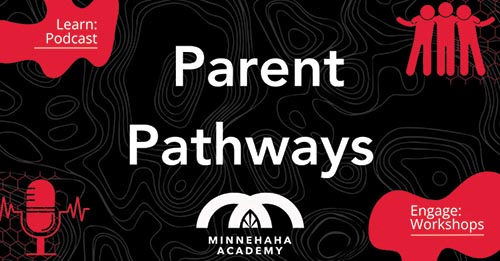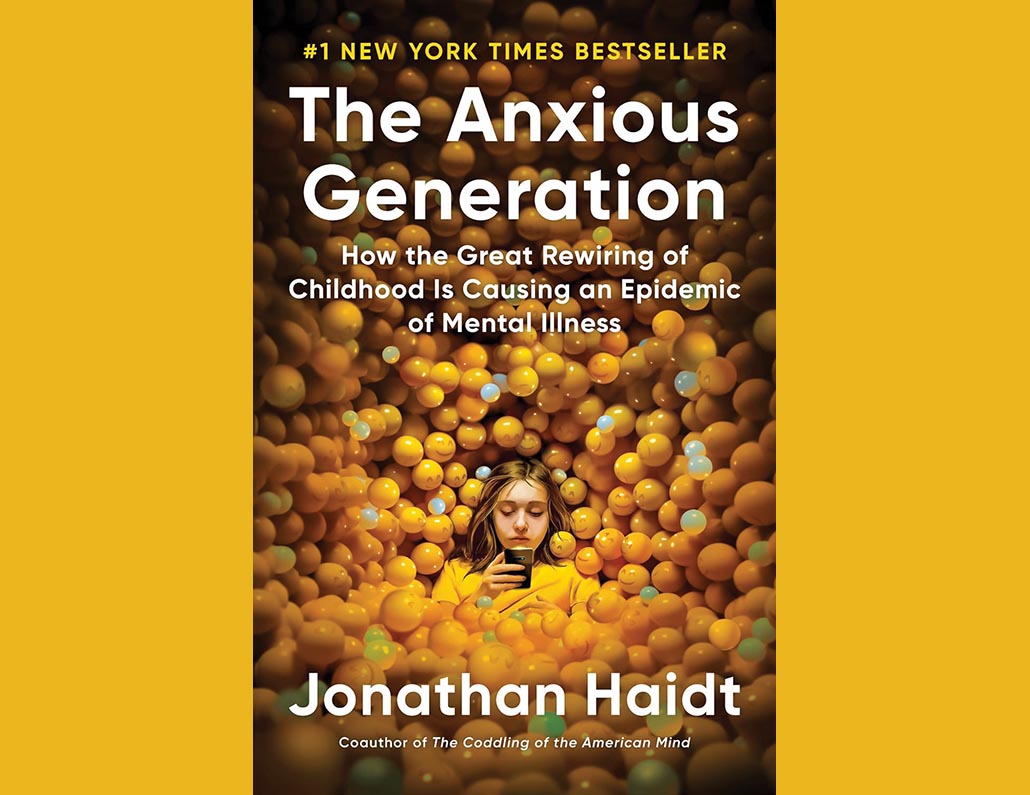Influential book leads schools to adopt stricter phone policies
School phone policies are a growing trend throughout the United States. As new research emerges about the benefits of limiting smartphone usage in the classroom, schools are turning to barring phones from classrooms.
Minnehaha was ahead of the game. The 2024-25 school year marks the third year Minnehaha has had its phone policy. Students must turn their phones in at their first-hour class and pick them up at the end of the day.
It’s been quite successful for Minnehaha, according to Lance Johnson, dean of students.
“I love it,” he said. “I see kids chatting now, and there’s less secret stuff going on without devices.”
Many students have seen the social benefits of not having their phones as well.
“I feel like it’s easier to talk to people when we don’t [have our phones],” said senior Eve Cermak. “It’s a lot better during lunch especially.”
Today’s teens’ screen time is on the rise. Social media platforms like Instagram, TikTok, and Snapchat are designed to lock users in for an extended period of time. This has had some significant effects. In his book The Anxious Generation, social psychologist Jonathan Haidt writes about the four harms of smartphones: social deprivation, sleep deprivation, attention fragmentation, and addiction.
Haidt claims social media has taken away from kids’ social lives. Instead of playing outside, they are playing on
screens. It has also ruined sleep schedules, making teens unable to focus and more irritable during the day. Along with sleep deprivation, it has ruined attention spans with the rise of easily consumable short-form content. Lastly, the biggest problem that is faced in school is addiction.
This rise of short-form content is so addictive that it’s hard to break away. According to the United Nations’ education, science, and culture agency, it can take up to 20 minutes to refocus on learning after using a phone.
Haidt’s book became a topic of discussion in the MA community when Lower School principal Karen Balmer, Executive Director of Faith Formation David Hoffner, and Lower School Counselor Kat McGraw hosted a discussion engaging parents in the topic.
 But the lower school isn’t the only one making efforts to engage the community in discussions about digital citizenship. Upper school librarian Dora Wagner has helped create resources through the new Parent Pathways initiative.
But the lower school isn’t the only one making efforts to engage the community in discussions about digital citizenship. Upper school librarian Dora Wagner has helped create resources through the new Parent Pathways initiative.
“I think that a lot of parents are coming at it with a great deal of fear or anxiety themselves,” said Wagner. “We want-
ed to offer a way to equip them to feel confident, informed, and capable of meeting the changes that they need to support their children’s well-being.”
The program will include discussions on shared meals, a podcast hosted by Wagner, and a workbook authored by Wagner.
The increase in digital consumption has affected youth outside of the classroom. Still, according to the Pew Research Center, 72% of U.S. high school teachers say cell phone distraction is a significant problem in the classroom.
Peers’ constant use of social media or phones creates a fear of missing out. Teens feel the need to see what not only their friends are doing but also the rest of the world is doing. This leads teens to constantly check their phones and fall into a distracted state, especially during the school day.
Phone policies help prevent distractions from learning and help students socialize more in the real world.
While parents may enjoy the social benefits their students receive from the phone policy, some worry about losing con-
tact with their children in an emergency.
However, according to schoolsecurity.org, “Cell phone use by students can impede public safety response by accelerating parental and community arrival at the scene of an emergency during times when officials may be attempting to evacuate students to another site.”
Johnson agrees with these sentiments.
“In emergency situations, many people have recommended that kids don’t use their phones,” Johnson said. “I know it’s hard because you want to be connected to your child in that situation.”
Johnson also detailed the school’s safety system, which helps to alert parents of emergencies and assure them that their students are safe.
A new bill presented to lawmakers in Minnesota calls for schools district-wide to implement phone policies by March 2025.
Minnehaha principal Mike DiNardo said every school should implement a phone policy during school hours.
“The research has shown that [phone] use is just too addicting and distracting, so students need to take a break in order to be able to focus,” said DiNardo.
His advice for school executives considering implementing a phone policy is, “One size does not fit all. Find a set of rules that works for your school situation and go with that.”

